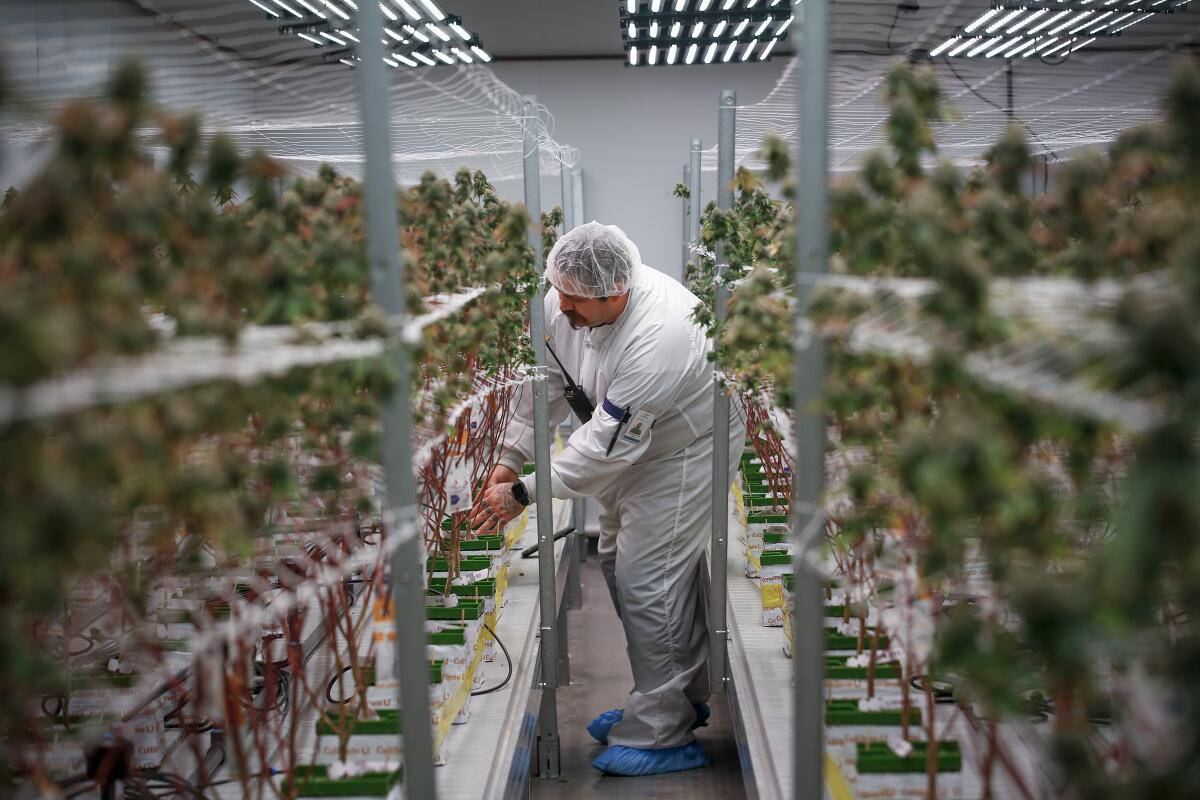Costa Mesa cannabis businesses get better tax reduction than expected

- Share via
In a win for Costa Mesa’s cannabis industry, the City Council voted Tuesday night to reduce a business tax even more than expected.
The city’s 6% tax on gross receipts for local cannabis product manufacturers, distributors, processors and researchers was permanently whacked to 1% and taken away altogether for testing laboratories.
The 5-1 vote, with Councilwoman Sandy Genis dissenting and Mayor Katrina Foley absent, drew cheers from the audience, which was packed with cannabis industry representatives who had spent about an hour promoting the benefits of a tax reduction.
The ordinance before the council proposed to temporarily cut the tax to 2% — a suggestion cannabis businesses made in a November letter to the city. But after nearby Long Beach cut its 6% tax to 1% in December, local industry leaders lobbied for a matching rate.
The revenue difference for the city between a 1% tax and a 2% tax would be about $100,000 annually in the short term, said Finance Director Kelly Telford. In the long term, it should even out as existing businesses do better and more come in, she said.
For the industry, business leaders said, it could mean the difference between opening in Costa Mesa or taking their business elsewhere.
Corey Thomas, a cannabis product manufacturer in Monterey County, said she was considering taking her business to Costa Mesa, but the tax rate was a red flag. A business looking at prospects in Costa Mesa would be dissuaded by the inability to cultivate and sell the cannabis, on top of an “inflated rate,” she said.
In addition to the gross-receipts tax, local marijuana companies must pay state excise and sales taxes, a cultivation tax and state and federal income taxes — a combined 35%, a city staff report estimated.
Genis said that although she supported the tax reduction, she could not vote for a permanent change, since the tax rate was set by Measure X, a local ballot initiative, and she felt she had to “support what the voters said.”
Measure X, which Costa Mesa voters approved in November 2016, allows businesses that research, test, process and manufacture some marijuana products to open in Costa Mesa’s “green zone,” the area north of South Coast Drive and west of Harbor Boulevard.
“I want Costa Mesa to be in a position to benefit from what could be a growing market,” Councilwoman Arlis Reynolds said. “The cannabis industry is an important, rare potential revenue resource. I worry that if we don’t act quickly and closely with our industry partners ... that we lose the opportunity to benefit from that revenue resource. I want to signal that starting your business in Costa Mesa [and] keeping your business in Costa Mesa is a smart investment.”
Costa Mesa’s ad hoc committee on marijuana will continue discussing the local cannabis industry, which has not reached the potential city leaders hoped for when Measure X passed.
Next on the committee’s agenda: home delivery and retail, according to Mayor Pro Tem John Stephens.
All the latest on Orange County from Orange County.
Get our free TimesOC newsletter.
You may occasionally receive promotional content from the Daily Pilot.






